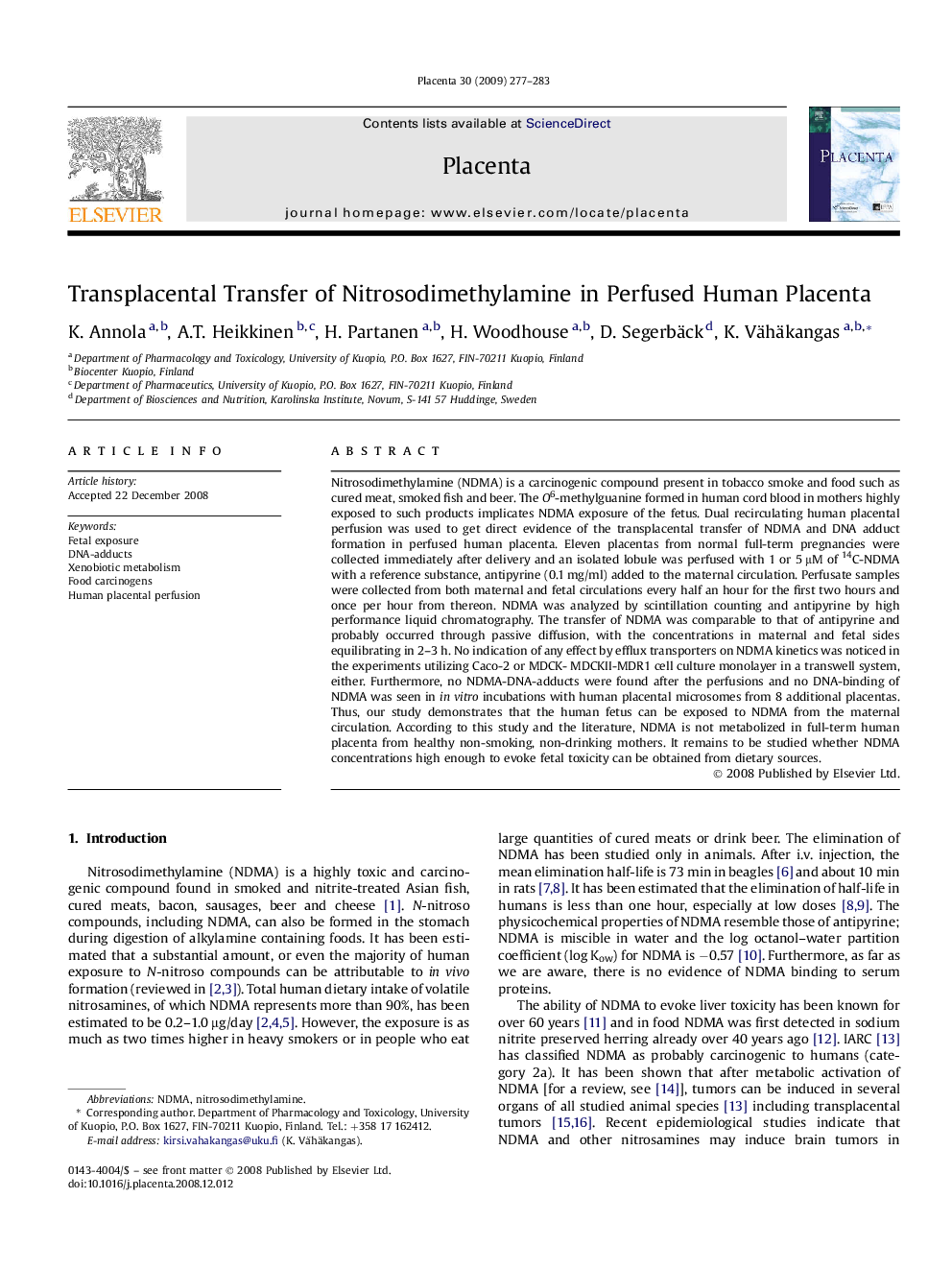| کد مقاله | کد نشریه | سال انتشار | مقاله انگلیسی | نسخه تمام متن |
|---|---|---|---|---|
| 2789929 | 1154534 | 2009 | 7 صفحه PDF | دانلود رایگان |

Nitrosodimethylamine (NDMA) is a carcinogenic compound present in tobacco smoke and food such as cured meat, smoked fish and beer. The O6-methylguanine formed in human cord blood in mothers highly exposed to such products implicates NDMA exposure of the fetus. Dual recirculating human placental perfusion was used to get direct evidence of the transplacental transfer of NDMA and DNA adduct formation in perfused human placenta. Eleven placentas from normal full-term pregnancies were collected immediately after delivery and an isolated lobule was perfused with 1 or 5 μM of 14C-NDMA with a reference substance, antipyrine (0.1 mg/ml) added to the maternal circulation. Perfusate samples were collected from both maternal and fetal circulations every half an hour for the first two hours and once per hour from thereon. NDMA was analyzed by scintillation counting and antipyrine by high performance liquid chromatography. The transfer of NDMA was comparable to that of antipyrine and probably occurred through passive diffusion, with the concentrations in maternal and fetal sides equilibrating in 2–3 h. No indication of any effect by efflux transporters on NDMA kinetics was noticed in the experiments utilizing Caco-2 or MDCK- MDCKII-MDR1 cell culture monolayer in a transwell system, either. Furthermore, no NDMA-DNA-adducts were found after the perfusions and no DNA-binding of NDMA was seen in in vitro incubations with human placental microsomes from 8 additional placentas. Thus, our study demonstrates that the human fetus can be exposed to NDMA from the maternal circulation. According to this study and the literature, NDMA is not metabolized in full-term human placenta from healthy non-smoking, non-drinking mothers. It remains to be studied whether NDMA concentrations high enough to evoke fetal toxicity can be obtained from dietary sources.
Journal: Placenta - Volume 30, Issue 3, March 2009, Pages 277–283